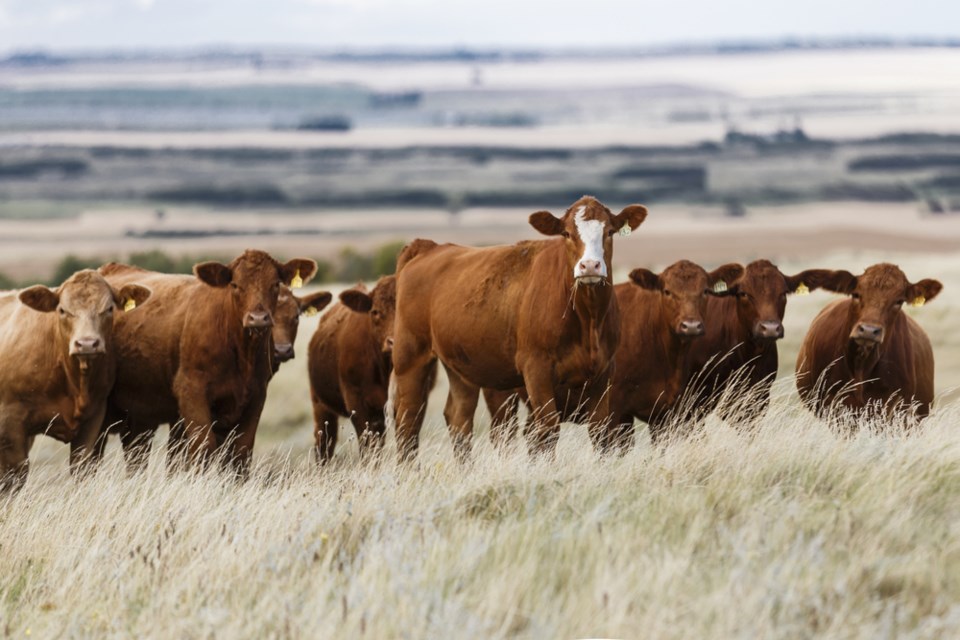Cattle producers pocketed $10 million in rainfall insurance last year with a sky-high return on premiums invested in the program.
While he doesn’t have the information on enrolment in the federal-provincial program, livestock forage specialist Trevor Peardon says “a pretty small number of the producers” have joined.
“Who wasn’t worried about rainfall last March?” he asked about 60 people at a livestock producers workshop at Johnstone Auction Mart.
Only a few producers put their hand up when he asked how many used the Saskatchewan Crop Insurance Corporation plan.
Rainfall insurance “is a way to protect yourself from a wreck.”
Producers can choose any weather station within 100 km as their station to monitor rainfall for the plan. Payment automatically kicks in on each percentage point of rain below 80 per cent of average rainfall.
The payment is 2.5 per cent for each point below 80 and reaches 100 per cent when rainfall is 40 per cent of average.
Rainfall as a percentage of the average is calculated on each of the four months insured and tallied, so excessive rain in one month will reduce the average.
Pearson outlined a northeastern community pasture’s experience with the plan. Twenty-four of the 30 producers took insurance and shared $273,000 last year.
“They managed to get through the year and got half their grazing fees for next year.”
Producers have eight options to choose what percentage of rainfall they insure in each of the four months. He likes the 30-30-30-10 per cent option.
Producers cite cost as a reason for not enrolling.
Taking a mock case of a producer at Johnstone Auction Mart with 2,500 acres native pasture and 1,000 acres tame pasture, he said the producer’s 60 per cent share of the premium was $6,610 to insure at 125 per cent of rainfall on the 30-30-30-10 per cent option.
The payment after calculating was $44,923.
“Not a bad return on your money.”
An operation of that size in Spring Valley, using the same option, would have paid $3,510 and received $66,532.
Peardon suggested waiting to insure until improvements are announced in February. Deadline is March 31.
Ron Walter can be reached at [email protected]




